Latest episode
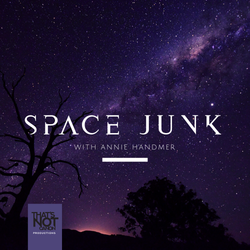
Space Junk - Space, Law, and Morality (with Duncan Blake)
51:55|CONTENT WARNING: please be aware that this episode includes detailed discussions of wartime killing, and of targeted airstrikes in particular.In this episode I speak to Wing Commander Duncan Blake who spent 22 years as a legal officer in the Royal Australian Air Force, most recently in the Middle East where he provided legal support to aerial targeting operations in Iraq and Syria. He served as the Deputy Director of Operations and International Law for the Australian Department of Defence, providing operations and international law advice and support at the highest levels within Defence and across government. Those of you listening might know Duncan better from his work in international space law. Duncan is currently doing a PhD in space law through Adelaide University and is a driving force behind the Woomera Manual on international law applicable to military space activities. He also teaches at UNSW Canberra. If you’d like to read more about his work, you can find more information here: https://researchers.adelaide.edu.au/profile/duncan.blake and here: https://www.ialpg.com/duncan-blake/The paper we refer to in the episode is 'I am not the High Priest in a Secular Military!' and can be accessed here: https://law.adelaide.edu.au/ua/media/1017/ALR_40%282%29_17_Blake_Web.pdfThe Steven Shapin paper on the role of experts is called 'The Way We Trust Now: the authority of science and the character of the scientists': https://scholar.harvard.edu/files/shapin/files/shapin-twwtn.pdf
More episodes
View all episodes

Space Junk - Antarctic Leadership in the time of COVID (with David Knoff)
54:03|This week I spoke to David Knoff, who recently spent 537 days in Antarctica as the leader at Davis Station. David and his team did not know when they left Australia in late 2019, that the COVID-19 pandemic would change the world and leave them isolated longer than they had ever expected and force them to endure an extended stay without resupply and alone. Prior to his posting in Antarctica, David worked with the Australian Defence Force and the Department of Foreign Affairs and Trade, focused on counter-terrorism in the middle east. He credits his experience of working in a dynamic and hostile environment as shaping his approach to leading teams in unpredictable circumstances and under constant change. Antarctica is a very useful analogue when we think about what it might be like to have lunar bases and long-term space missions. It turns out that David is a massive space nerd, and when I reached out to him to come on the podcast and talk about his experiences he very kindly agreed to do so. Unfortunately due to lockdowns we had to have our conversation over Zoom rather than over a beer in Melbourne, which I think both of us would have vastly preferred, but it turned out to be a fascinating and uplifting conversation that bridged polar medicine, penguins, home brew, dating in Antarctica, and The Bachelor, so please, as always, forgive the slightly less-than-optimal audio quality. You can find David’s cute photos of penguins on Instagram at button_film, and as always you can follow me on @anniehandmer on all the socials.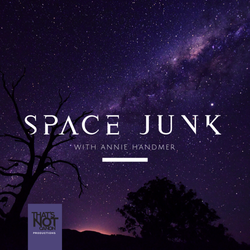
Space Junk - Space and Political Science (with Dr Kat Robison Hasani)
48:11|Kathryn Robison Hasani, PhD is a political scientist who is passionate about space and science communication. In addition to her doctorate and master's in Political Science from the University of Alabama, Kat also holds degrees in Anthropology, Near Eastern Studies, and American Studies from the University of Arizona and Youngstown State University. She has traveled the world for research and language studies, and is a poet and podcaster. Her research interests are in the fields of space policy and communication (both political and science) with a particular interest in the role communication plays in the formation and dissemination of national space policies. Kat is currently a lecturer at Wake Technical Community College. She is also a member of the International Astronautical Federations's Space Education and Outreach and Workforce Development/Young Professionals Programme Committees and serves as the coordinator for the Next Generation Plenary Steering Committee. As a result of her volunteer work, and in recognition of her contributions to the field, Kat was selected as a 2021 Young Space Leader by the IAF. She is also currently participating in UNOOSA's Space4Women Mentoring Program. You can find out more about Kat at www.kathrynrobison.com or reach out on Twitter at @katrobison. She is always happy to chat about space, poetry, politics, or podcasts. Support this show http://supporter.acast.com/space-junk-podcast.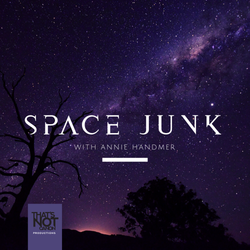
Space Junk - Blowing up Pluto and the Choreography of Life (with Adeene Denton)
48:49|This slightly chaotic episode features Adeene Denton. Adeene is a planetary geologist who works on surface processes on terrestrial bodies. Her current research focuses on massive impact basins on Pluto, Martian subsurface drainage networks, and tectonic activity on icy satellites. Adeene is trained as a scientist, historian, and dancer, and she’s also the co-director of the Ethics and Human Rights in Space Project Group for the Space Generation Advisory Council. Find out more about Adeene on http://www.adeenedenton.com/ or follow Adeene on Twitter: @spacewhalerider Support this show http://supporter.acast.com/space-junk-podcast.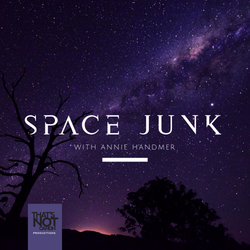
Space Junk - Managing Big Space Projects and Science Career Paths (with Dr Sarah Pearce, CSIRO)
39:31|In this episode I interview Dr Sarah Pearce, the deputy director of CSIRO Astronomy and Space Science. We talk about Sarah’s career path, which includes stints with UK parliament and the Large Hadron Collider, and the challenges and joys of managing the Square Kilometre Array. We also chat about working from home, balancing work and family, and punting! Support this show http://supporter.acast.com/space-junk-podcast.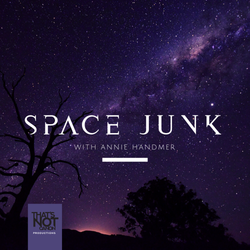
Space Junk - Science, Spies and the State: The Cold War Struggle for the Soul of Science (with Dr Audra Wolfe)
39:33|In this episode I am joined by historian of science Dr Audra Wolfe. With a background in both science (B.S., chemistry, Purdue University, 1997) and history (Ph.D., history and sociology of science, University of Pennsylvania, 2002), Audra has been thinking through the relationship between science and power for more than two decades. Her work specifically focuses on the role of science during the Cold War, a period when science held a special place in maintaining and projecting state power. In this episode we talk about Audra's book 'Freedom's Laboratory', and delve into the complex relationship of ideology, funding, and science during the Cold War period in the USA. Support this show http://supporter.acast.com/space-junk-podcast.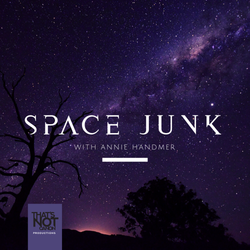
Space Junk - Space and Youth Gender Activism (with Selin Ozunaldim)
23:36|The guest for this episode of Space Junk Pod is 17-year-old gender activist Selin Ozunaldim. Selin is Turkey’s youngest United Nations HeForShe representative, the founder of Girl Up Istanbul and Girls Who Code Turkey, and is on the Girl Rising task force. She’s an absolute powerhouse and I was thrilled to have her on the show to talk about Space, her work with women in STEM, and why she does what she does.You can find Selin on Instagram at @selinozunaldim. Support this show http://supporter.acast.com/space-junk-podcast.